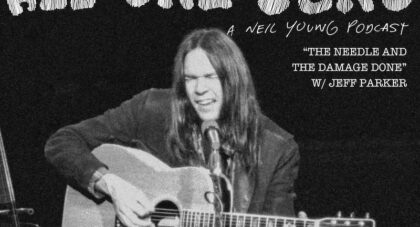If time is a flat circle, the members of Oneida have figured out how to toss it like a frisbee. Nearly a quarter century since their debut album, the avant-rock quintet have returned with one of the most straightforward, riff-heavy records in their vast discography: Success. Bobby Matador and Kid Millions join us to discuss the record, the band's history, and the Grateful Dead . . .
Only the good shit. Aquarium Drunkard is powered by its patrons. Keep the servers humming and help us continue doing it by pledging your support.
To continue reading, become a member or log in.


